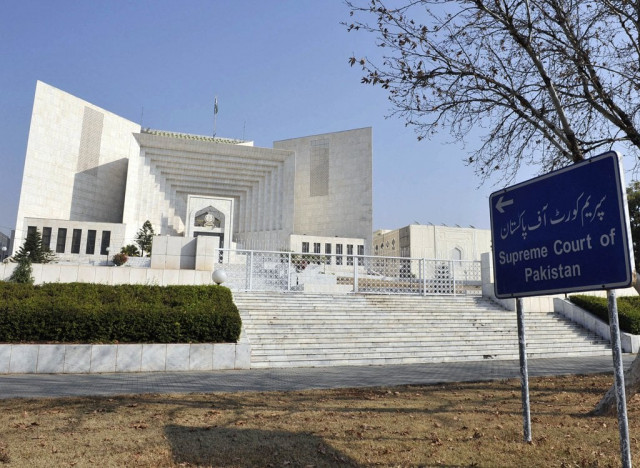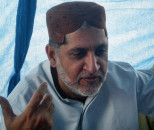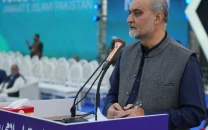‘Courts can’t force DNA tests on free persons’
SC overturns PHC verdict in case filed by man claiming his sister was adopted

Supreme Court of Pakistan. PHOTO: AFP
“If a sample is forcibly taken from Laila Qayum to determine her paternity, it would violate her liberty, dignity and privacy which Article 14 of the Constitution of the Islamic Republic of Pakistan guarantees to a free person,” says the judgment authored by Justice Qazi Faez Isa.
Fawad Qayum filed a suit against Laila Qayum alleging that she was “an abandoned infant in a local hospital” and was adopted by his father, late Abdul Qayum, and mother, Nasreen Begum, in 1996 and was brought up as their own daughter. The adoption was concealed from Laila and she was made to believe that she is the biological daughter of Abdul Qayum and Nasreen Begum, Fawad further alleged.
In his suit, Fawad sought two declarations -- firstly, that Laila was not the real daughter of Abdul Qayum and Nasreen Begum and, secondly, that Laila has no right to their “legacy”.
He also prayed that all academic and official identity documents showing Laila to be the daughter of Abdul Qayum be cancelled to such extent. The suit was filed on June 19, 2015 when Laila was 19. Laila filed her written statement and denied Fawad’s allegations.
The suit was pending when Fawad filed an application seeking a deoxyribonucleic acid (DNA) test to be conducted on Laila, Fawad, and Nasreen Begum to determine Laila's parentage.
SC calls for legislation to decide murder victim’s heirs
Interestingly, the trial judge allowed the application on 9th February, 2017. However, his order was set aside by an appellate court judge in a March 15, 2017 judgment, which was challenged by Fawad in a writ petition before the Peshawar High Court, Mingora Bench (Dar-ul-Qaza), Peshawar. The high court set aside the judgment of the Appellate Court and restored the order of the trial court, which had directed that a DNA test be carried out. Later, the matter was brought before the apex court.
After four years of litigation, a division bench comprising Justice Mushir Alam and Justice Qazi Faez Isa in its judgment has noted that the court cannot legally make the declarations the plaintiff seeks, nor can it order the cancellation of the documents.
The order also said that the suit filed by Fawad cannot be decreed. “To keep such a suit pending only harasses the petitioner further and may deprive her of her inheritance. Already a lot of court time has been taken up to attend to this frivolous suit. Therefore, we invoke our ancillary powers, granted to us under Article 187 of the Constitution, as it is necessary for doing complete justice, and exercising such powers dismiss the suit pending before the Senior Civil Judge Gulkada, Swat. We also award costs throughout, to be paid by [Fawad] to [Laila].”
The SC has sent the copy of the judgment to the trial court. A copy has also been sent to the Peshawar High Court registrar for placement before the PHC judge who passed the judgment.
The court also observed that a DNA test might still not confirm Laila’s paternity. The same also holds true for Fawad and any siblings whom he acknowledges. Abdul Qayum died 16 years ago and getting his DNA would require disinterring his body from the grave to take a sample from his remains. Fawad’s suit, however, is premised on the assumption that he is the son of Abdul Qayum, and on the basis of this assumption, he denies Laila’s paternity. Fawad’s assertion that Abdul Qayum is his father is equally assumptive to Laila asserting this, says the judgment.



















COMMENTS
Comments are moderated and generally will be posted if they are on-topic and not abusive.
For more information, please see our Comments FAQ